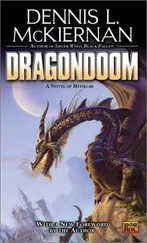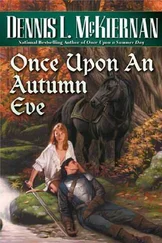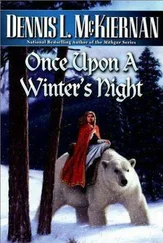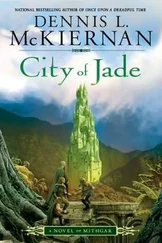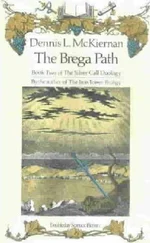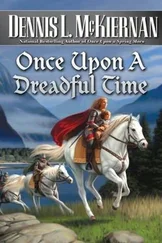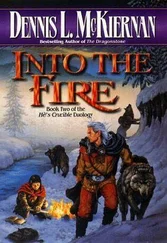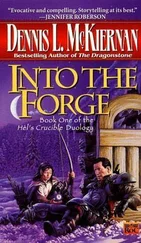Dennis McKiernan - The Dragonstone
Здесь есть возможность читать онлайн «Dennis McKiernan - The Dragonstone» весь текст электронной книги совершенно бесплатно (целиком полную версию без сокращений). В некоторых случаях можно слушать аудио, скачать через торрент в формате fb2 и присутствует краткое содержание. Жанр: Фэнтези, на английском языке. Описание произведения, (предисловие) а так же отзывы посетителей доступны на портале библиотеки ЛибКат.
- Название:The Dragonstone
- Автор:
- Жанр:
- Год:неизвестен
- ISBN:нет данных
- Рейтинг книги:3 / 5. Голосов: 1
-
Избранное:Добавить в избранное
- Отзывы:
-
Ваша оценка:
- 60
- 1
- 2
- 3
- 4
- 5
The Dragonstone: краткое содержание, описание и аннотация
Предлагаем к чтению аннотацию, описание, краткое содержание или предисловие (зависит от того, что написал сам автор книги «The Dragonstone»). Если вы не нашли необходимую информацию о книге — напишите в комментариях, мы постараемся отыскать её.
The Dragonstone — читать онлайн бесплатно полную книгу (весь текст) целиком
Ниже представлен текст книги, разбитый по страницам. Система сохранения места последней прочитанной страницы, позволяет с удобством читать онлайн бесплатно книгу «The Dragonstone», без необходимости каждый раз заново искать на чём Вы остановились. Поставьте закладку, и сможете в любой момент перейти на страницу, на которой закончили чтение.
Интервал:
Закладка:
Dennis L. McKiernan
The Dragonstone
Foreword
In looking out there, I see a lot of red slippers scattered across the Mithgarian landscape, each just waiting to be examined, for each has a tale to tell if I can but scrutinize it closely.
Red slippers? Red slippers? What in the world is he talking about?
Just this:
Although to my knowledge this never happened, still I can imagine Watson beginning a narrative as follows: "It was soon after Holmes and I had resolved the peculiar case of the singular red slipper, when there came a knock on the door of our quarters at 221-B Baker Street. As I set aside the paper and prepared to answer the summons, Holmes put a finger to his lips and hissed, 'Do not under any circumstance, Watson, open the door without your pistol in hand, for it can be none other than the Bengalian assassin…' "
Watson would then go on to illuminate us as to the fascinating case of the circular cord.
But you know what? We never do find out about the red slipper, the one mentioned in his opening sentence.
Yet, for those of us who avidly followed Watson's narratives, we knew, knew, that in between, in between, those cases we did get to read about, the Great Detective was out there solving other most singular dilemmas, and if we just kept our eyes open, we indeed might see him afoot observing clues obvious to him but completely obscure to us… obscure, that is, until explained, at which time Lestrade might say, "Oh, how simple. Why anyone can see that." -Um, you bet.
Now, I repeat, as far as I know, Watson did not chronicle any Case of the Red Slipper, nor did he publish anything concerning a Bengalian assassin or a circular cord… but surely such things should have been. After all, there was the case of the giant rat of Sumatra, and there was the account of the Addington tragedy, and the story of the red leech, and the terrible death of Crosby, the banker, and many, many more cases alluded to but never published… each a red slipper dropped upon the Holmesian 'scape.
And there are red slippers lying all across Mithgar, and every now and again I pick up one that somehow was dropped, and in my best Sherlockian manner I examine it closely and tell you what I see.
Some Mithgarian red slippers have been: a small silver horn found in the hoard of Sleeth; a logbook entry concerning a crystal spear; a mention of the long-held secret of the Chakkia; a stone knife which disappeared in an iron tower; a silver sword taken from the hand of a slain Elven prince; and so on.
Some red slippers are enormous, such as a tapestry depicting a key moment in the Great War of the Ban. Some are small but have great impact, such as a stone ring given to an impossible child. These and more hold the most intriguing tales, and they are red slippers all, slippers which I may take up someday and see what they can tell you and me.
There is a problem in examining red slippers, though, for every time I take one up to tell its story, it seems more red slippers fall out.
Oh, well…
In any event, come with me as I pick up another one of these crimson shoes from the 'scape and let us not only see what we find but also what other red slippers might fall out.
– Dennis L. McKiernan May 1995
Author's Notes
The Dragonstone is a tale which takes place before the Separation, when mystical and mythical peoples and creatures yet lived within this world.
It is a story which begins 323 years before the events chronicled in Voyage of the Fox Rider, hence The Dragonstone is a tale which takes place before the Great War of the Ban, thus, the Rupt are free to roam about in daylight as well as night, although it is told that they prefer to do their deeds in darkness rather than under the sun.
The story of the Dragonstone was reconstructed from the fragments of a lengthy lay attributed to a bard named Delon. I have in several places filled in the gaps with notes from other references, but in the main the tale is true to its source.
As I have done in other of my works, I have used transliterated archaic Greek to represent the magical language of the Black Mages, and Latin to represent the magical words of all other Magekind.
There are many instances where in the press of the moment, the humans, Mages, Elves, and others spoke in their native tongues; yet to avoid burdensome translations, where necessary I have rendered their words in Pellarion, the Common Tongue of Mithgar. However, some words and phrases do not lend themselves to translation, and these I've either left unchanged or, in special cases, I have enclosed in angle brackets a substitute term which gives the "flavor" of the word (i.e., ‹see›, ‹fire›, and the like). Additionally, sundry words may look to be in error, but indeed are correct-e.g., DelfLord is but a single word though a capital L nestles among its letters.
The Elven language of Sylva is rather archaic and formal. To capture this flavor, I have properly used thee and thou, hast, dost, and the like; however, in the interest of readability, I have tried to do so in a minimal fashion, eliminating some of the more archaic terms.
For the curious, the w in Rwn takes on the sound of uu (w is after all a double-u), which in turn can be said to sound like oo (as in spoon). Hence, Rwn is not pronounced Renn, but instead is pronounced Roon, or Rune.
"Perhaps, Ferai, you are along to make us believe that we indeed have free will."
"And perhaps, Burel, you are along to make us believe we do not."
THE
CHAPTER 1
Lightning stroked the night, the glare flaring through the narrow windows, thunder rolling after. As if summoned by the flash, a blast of rain hammered down on the small, ramshackle, dockside tavern, while the wind rattled door and sideboards and slammed a loose shutter to and fro, and waves roared against the pilings 'neath.
Inside the weatherworn building the sound of the storm was muted somewhat, and Olar, his sharp elbows on the rough broad plank which served as a bar, leaned forward and hissed to Tryg, "Wha' be them two women doin' here, eh?" He thrust his narrow chin sideways toward the shadow-wrapped corner where the two strangers sat just beyond the yellow light of the single tavern lantern hanging above the bar. "Mayhap a couple o' doxies come t' ply their trade when th' raiders return, aye?"
Tryg, proprietor of the Cove, snorted at Olar's remark, then leaned forward and said in a voice just loud enough to be heard above the moan of the wind and drum of the rain and the rattle and bang and swash, "Ye'd better not let them hear ye call 'em doxies, laddie, else ye're like to come up missing y'r balls."
Yngli, the only other person in the tavern, slapped the plank and laughed at this remark, but Olar looked at Tryg in surprise. " 'N' j'st why d'ye say that?"
" 'Cause one o' them be an Elf, 'n' t'other's a, a, well I don't rightly know her kind, yet she be th' one wi' th' gleamin' swords."
Olar drew his breath in through clenched teeth and glanced toward the shadows of the darkened corner as lightning again stroked nearby, thunder slapping after.
The flare briefly illuminated the outsiders' faces: delicate, strange, exotic. The one on the left was fair skinned- ivory and alabaster-and she had hazel eyes aslant and chestnut locks falling to her shoulders, with pointed-tipped ears showing through. The one on the right was saffron skinned-tawny, ivory yellow-her tilted eyes glittered onyx, her short-cropped raven-black hair shone glossy… but this one's ears were not tipped.
Читать дальшеИнтервал:
Закладка:
Похожие книги на «The Dragonstone»
Представляем Вашему вниманию похожие книги на «The Dragonstone» списком для выбора. Мы отобрали схожую по названию и смыслу литературу в надежде предоставить читателям больше вариантов отыскать новые, интересные, ещё непрочитанные произведения.
Обсуждение, отзывы о книге «The Dragonstone» и просто собственные мнения читателей. Оставьте ваши комментарии, напишите, что Вы думаете о произведении, его смысле или главных героях. Укажите что конкретно понравилось, а что нет, и почему Вы так считаете.

